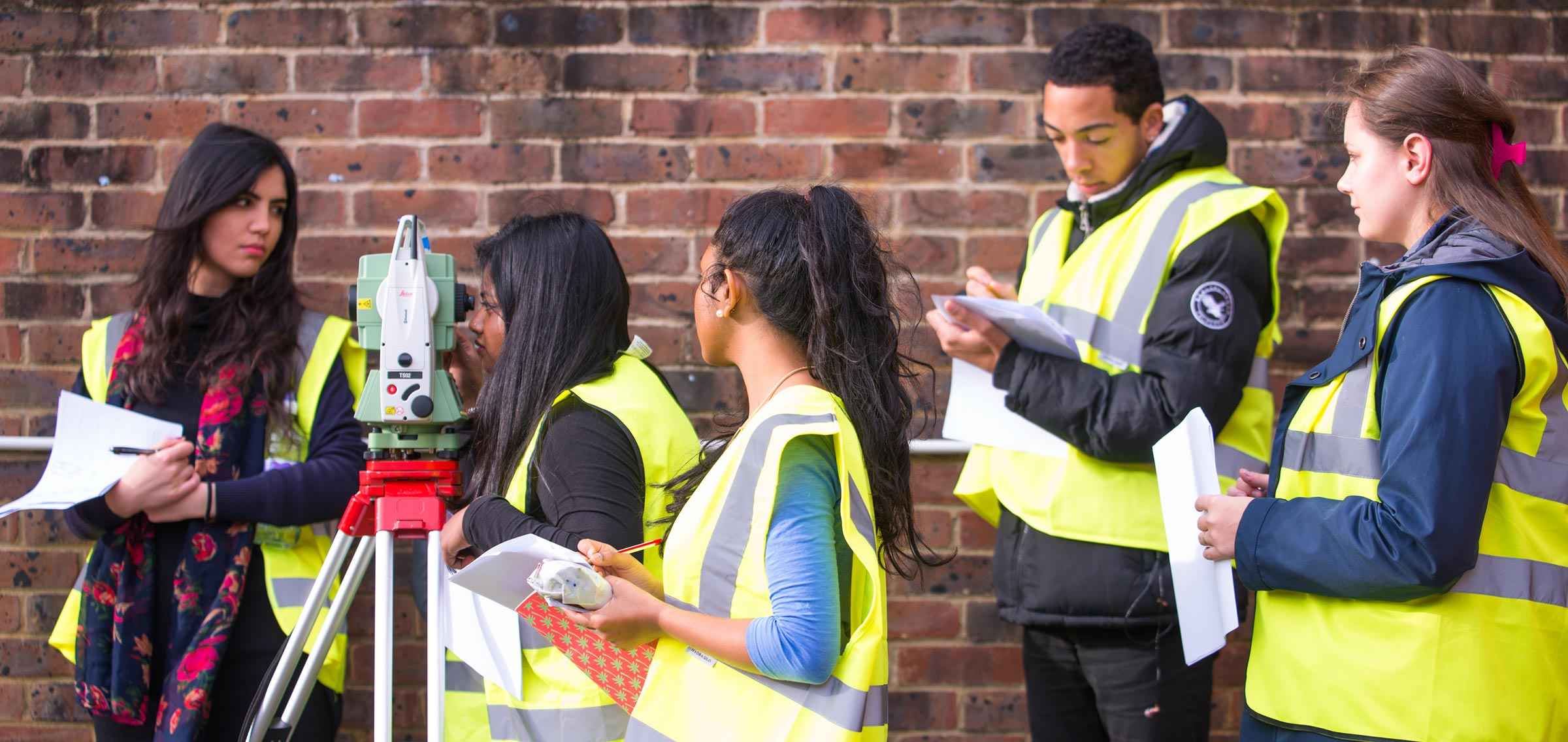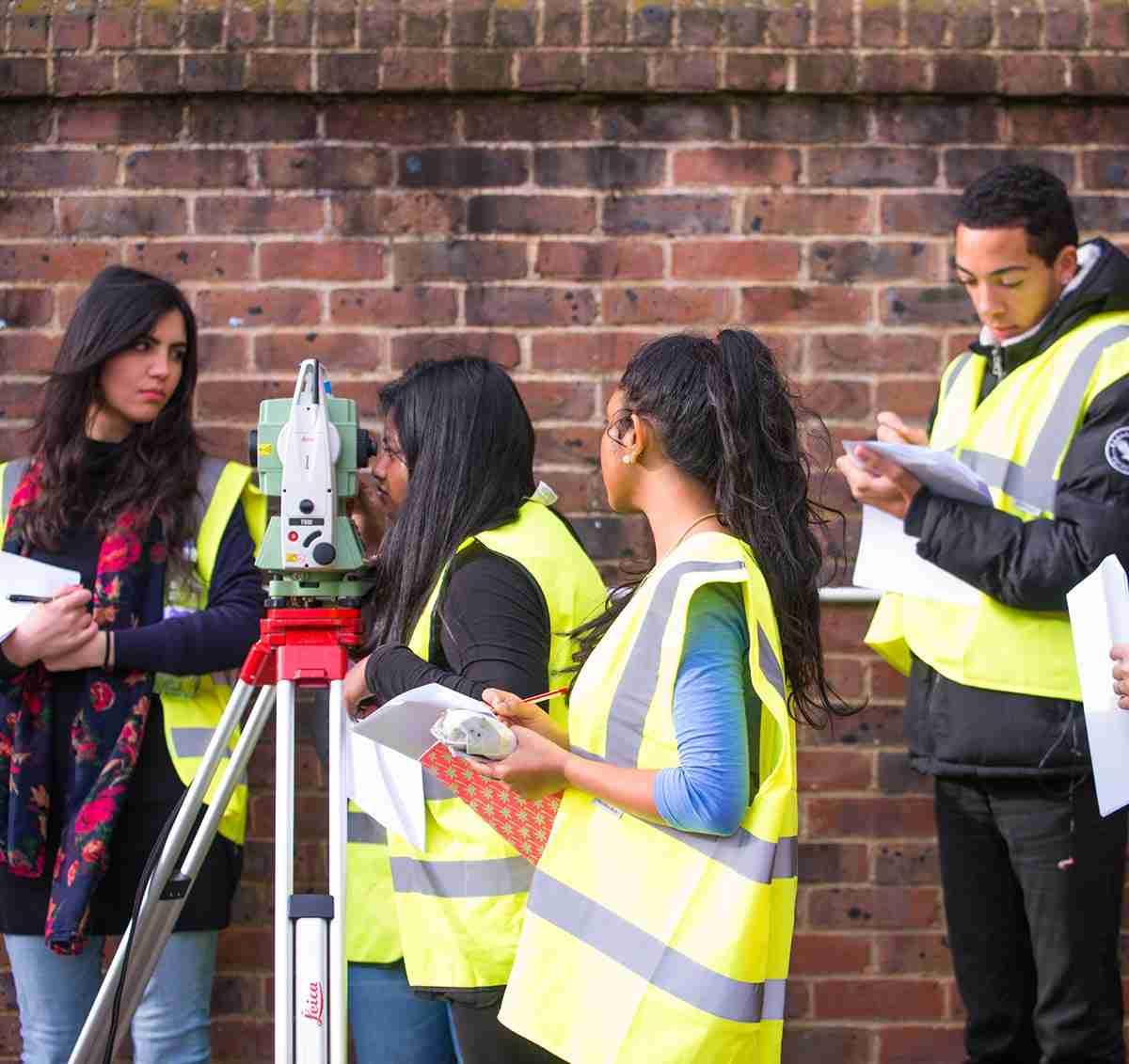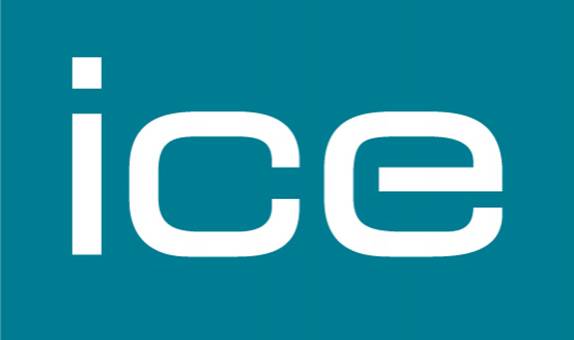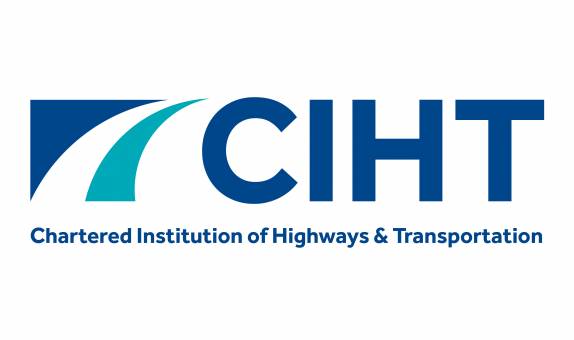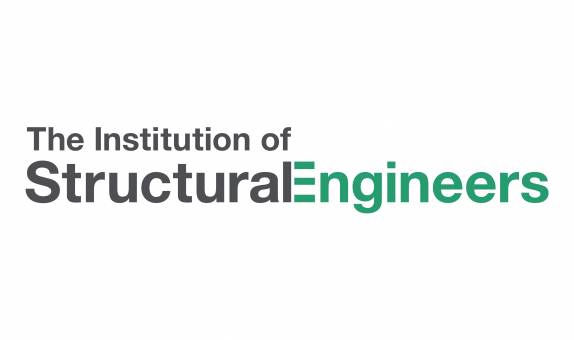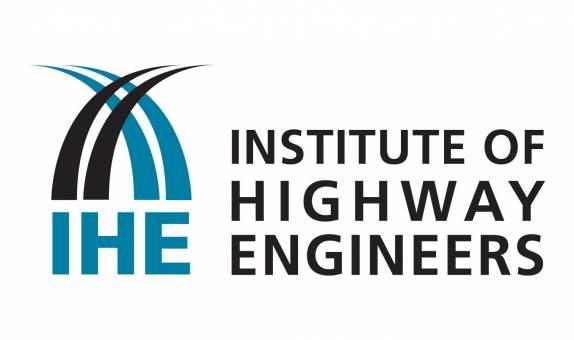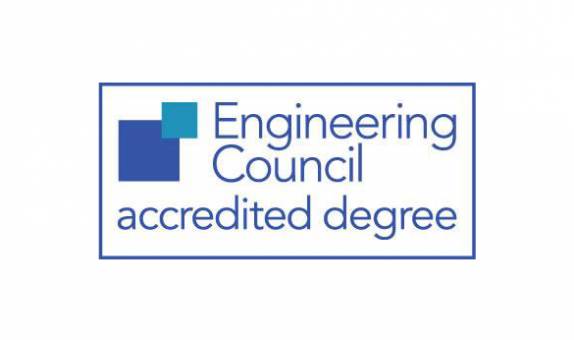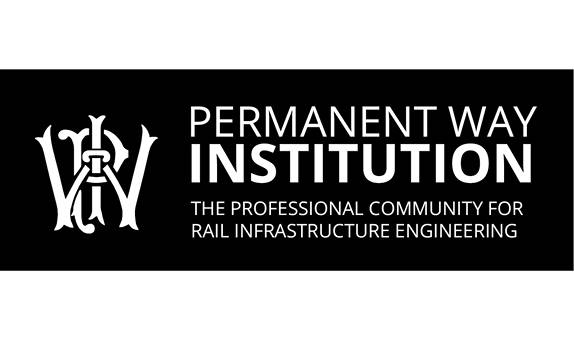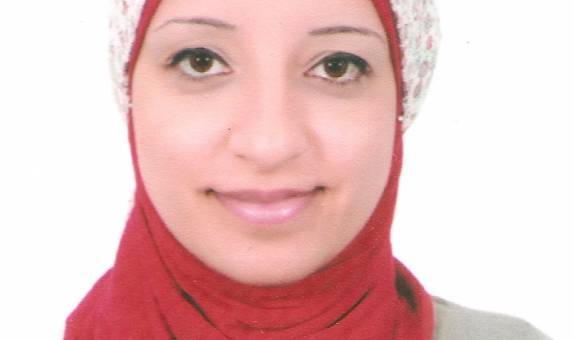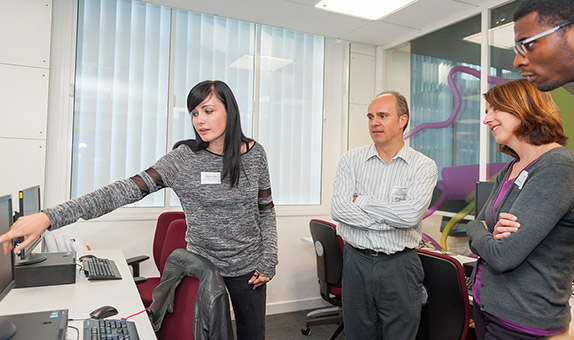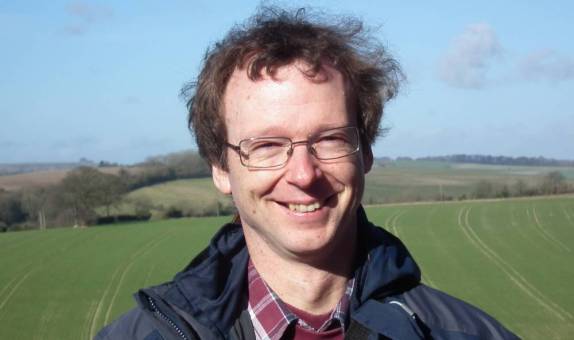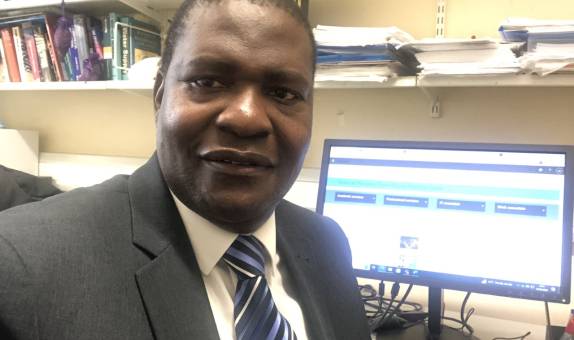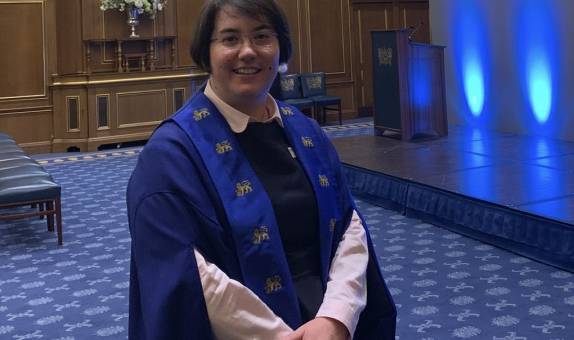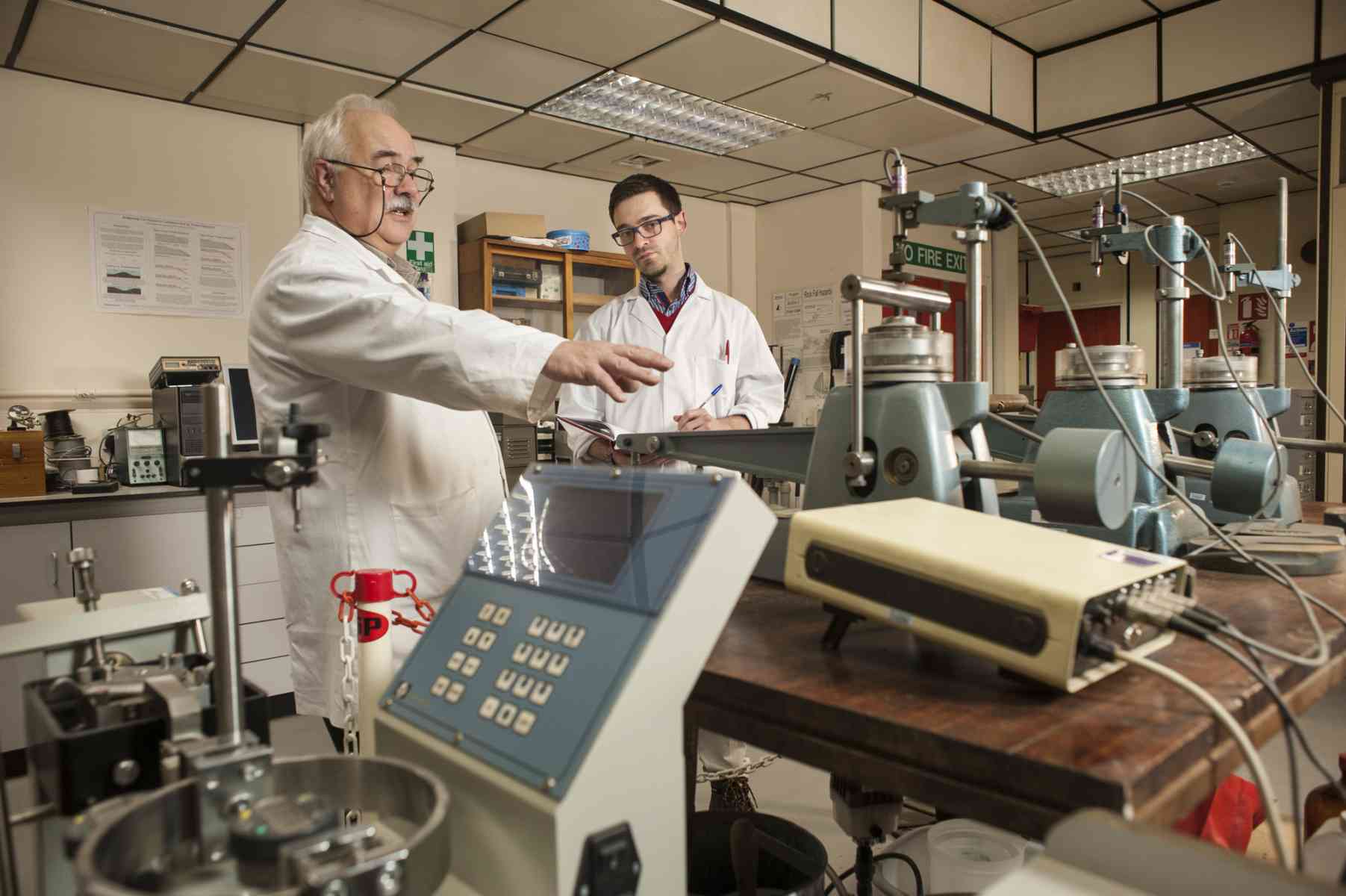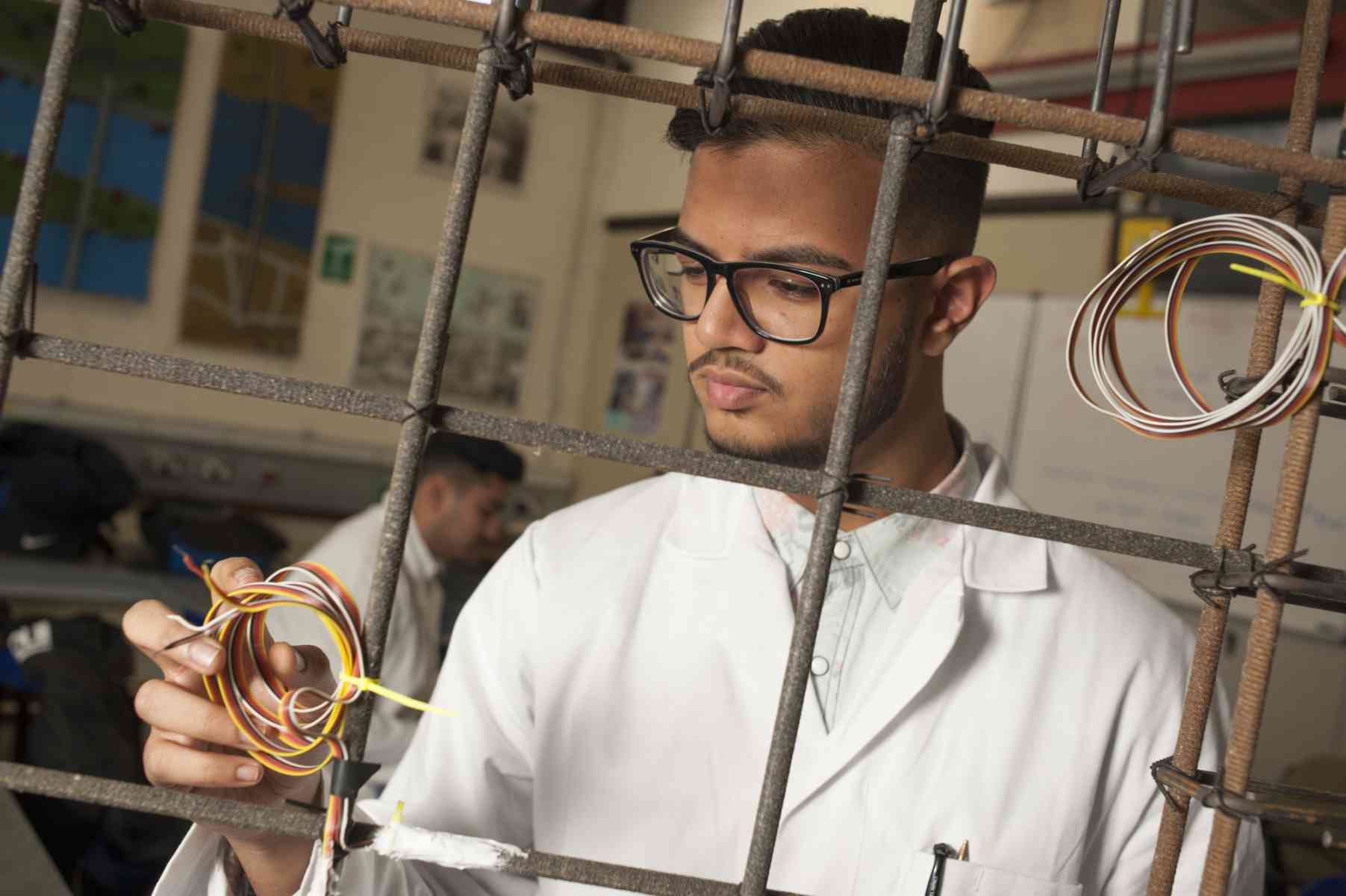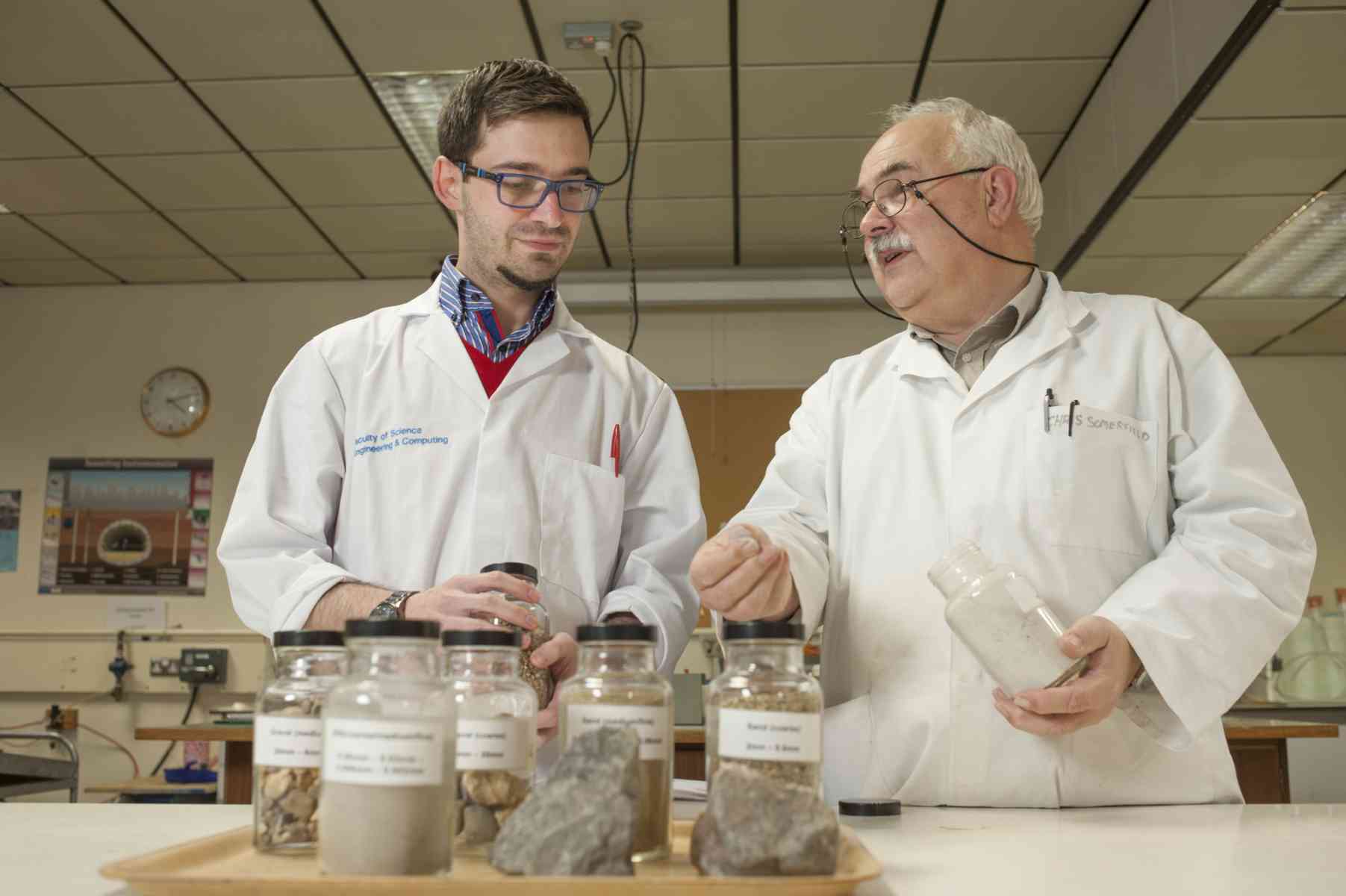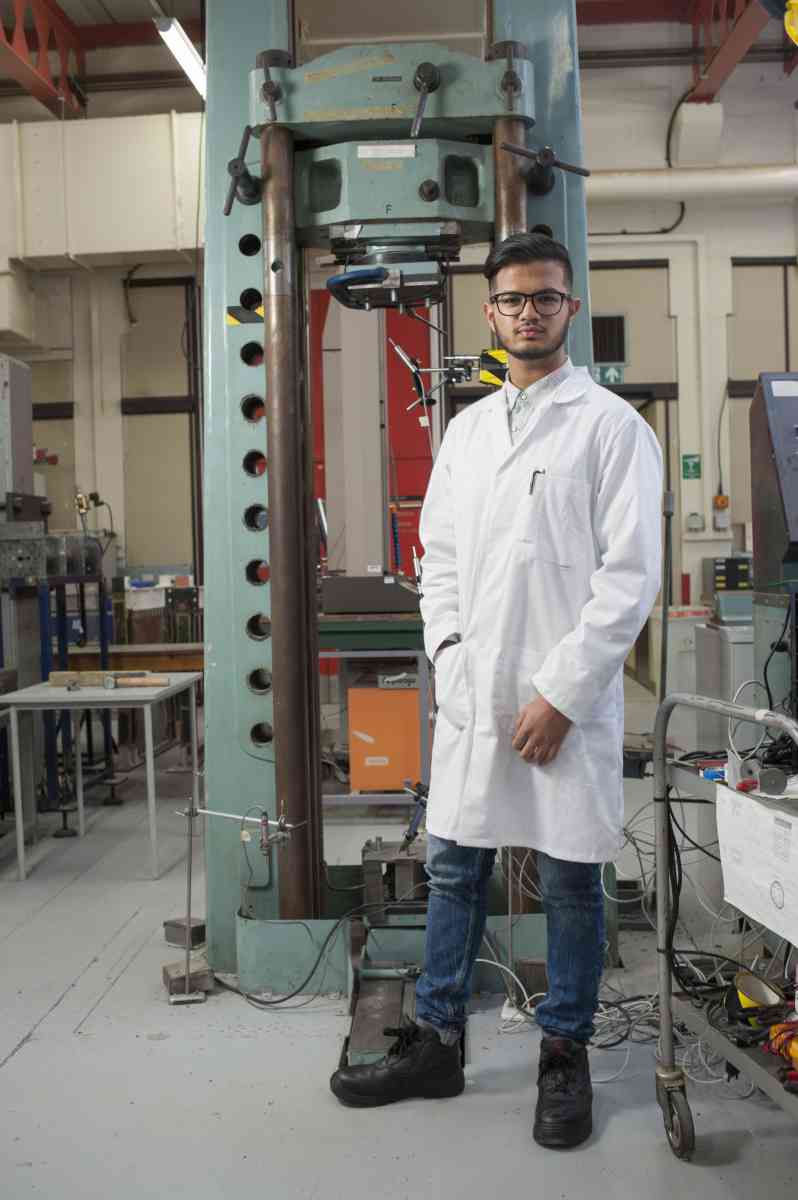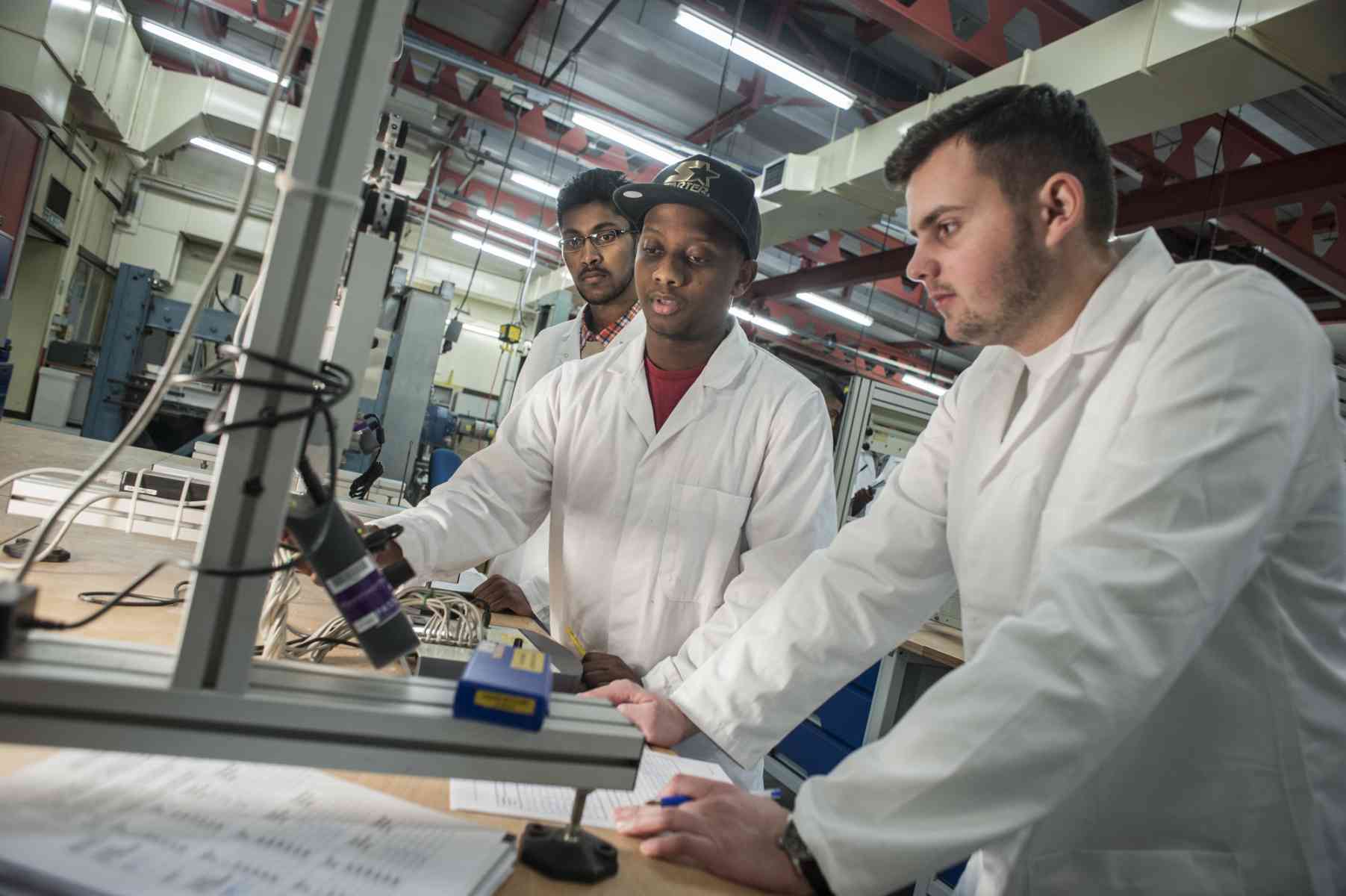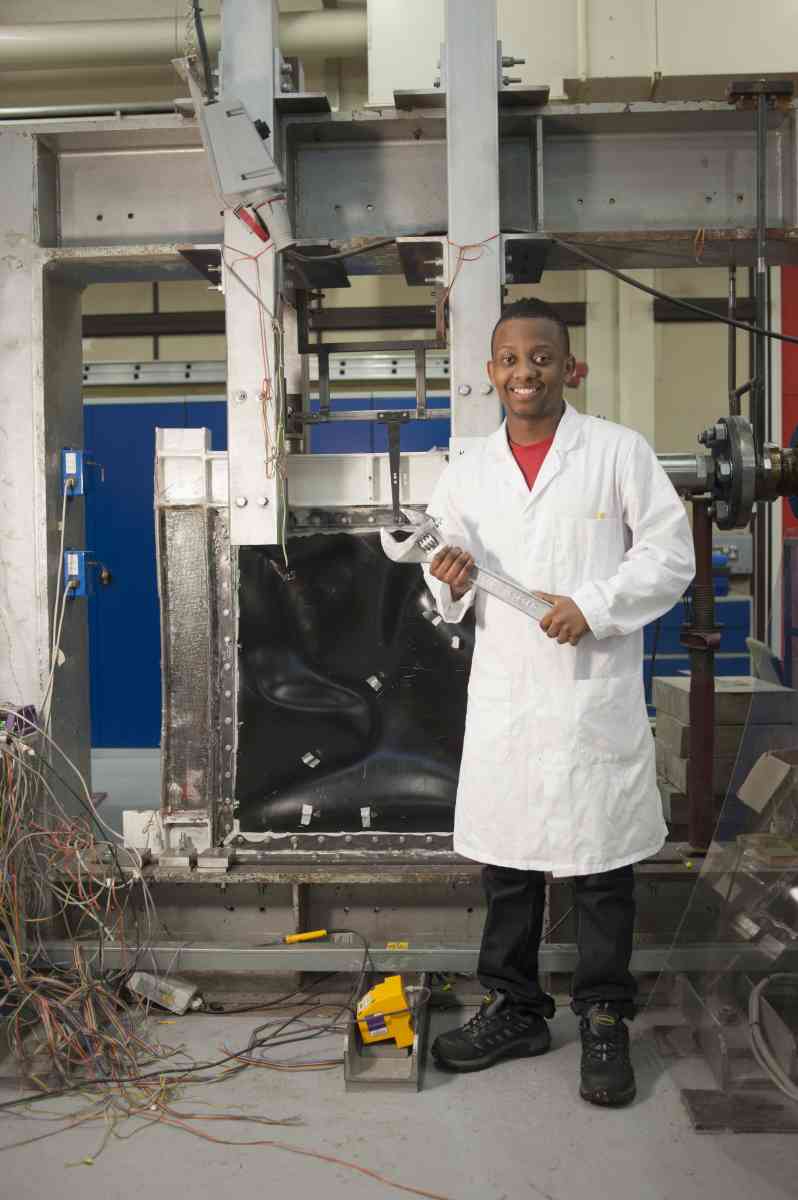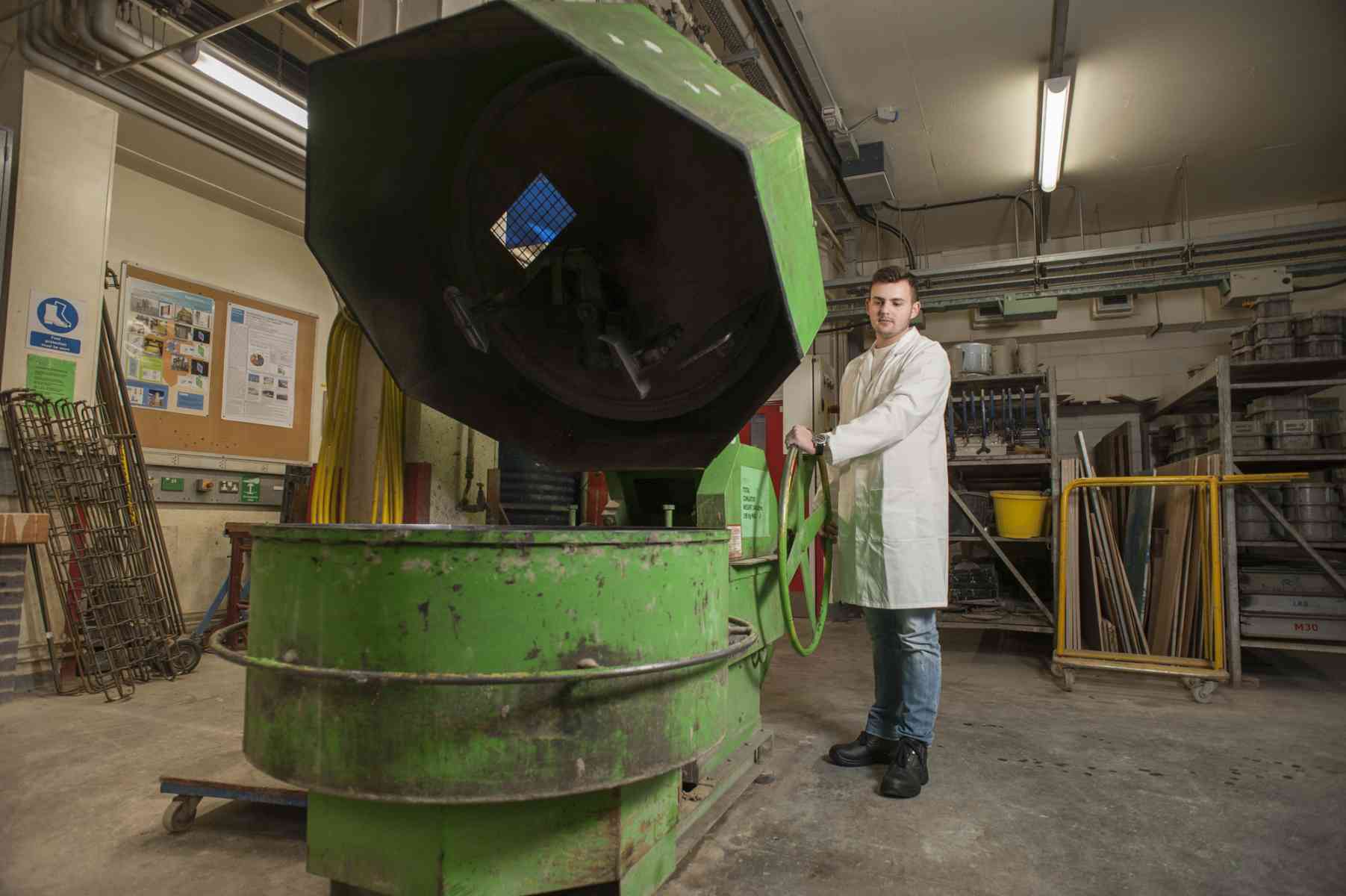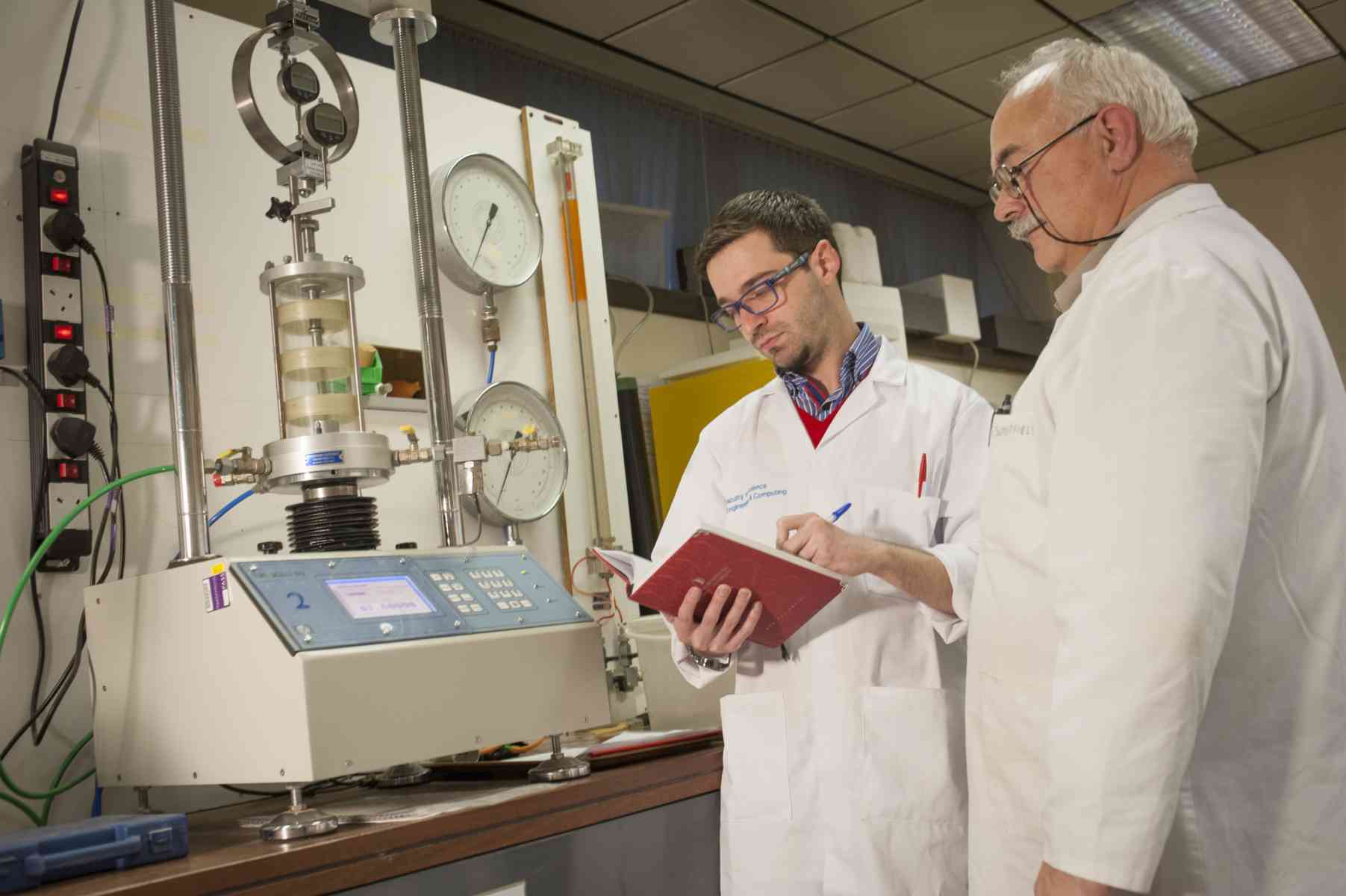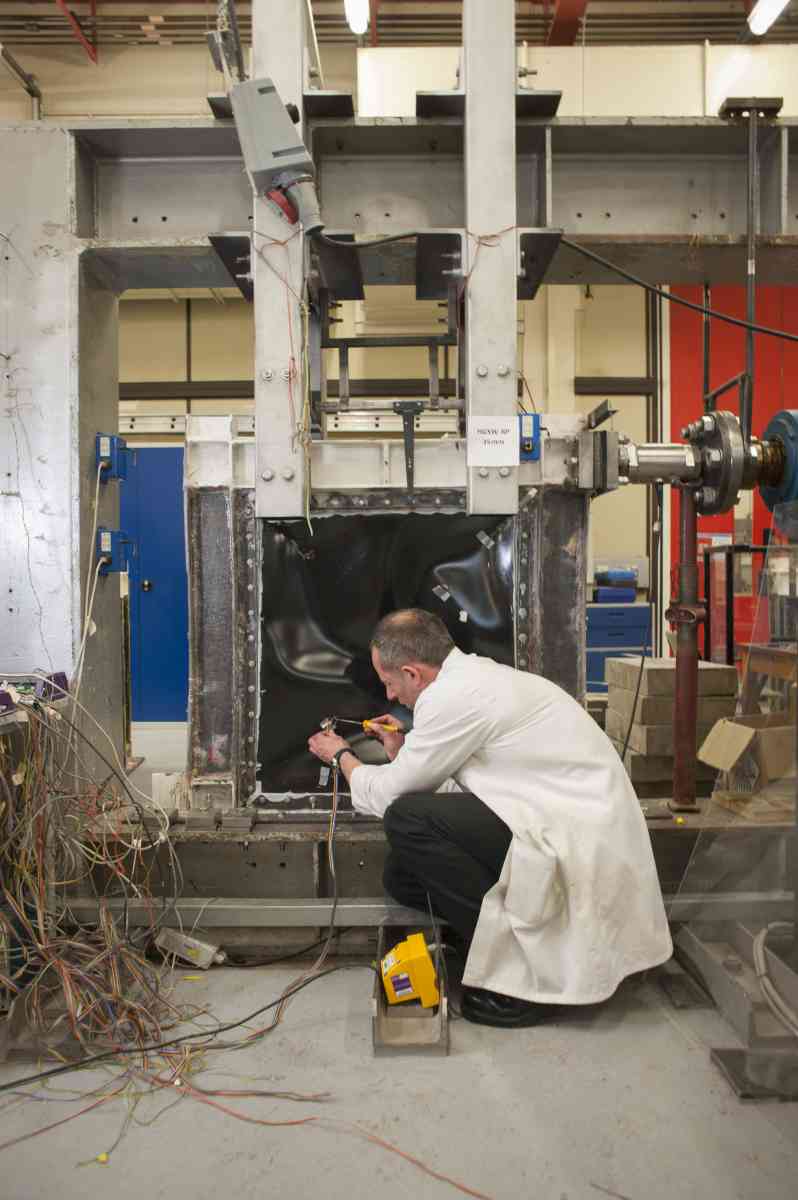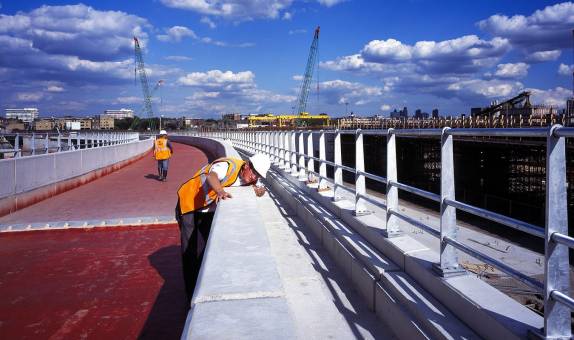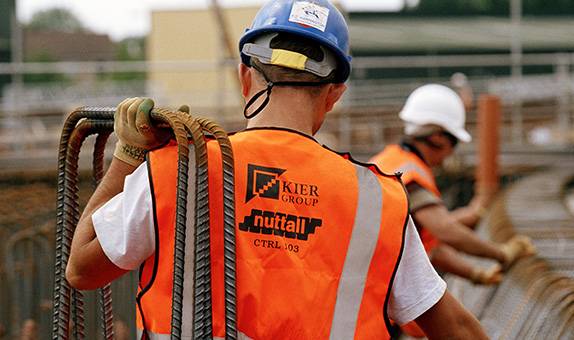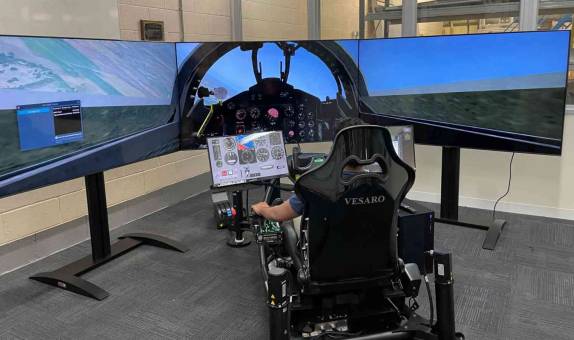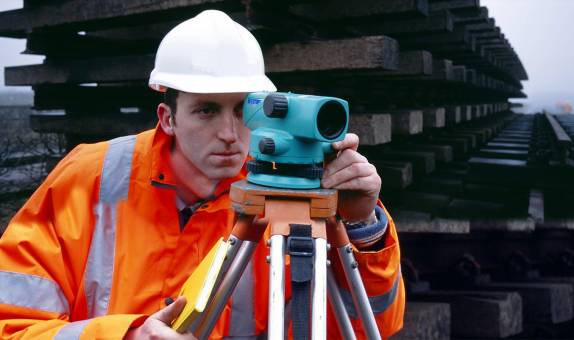Civil Engineering BEng (Hons)

Teaching Excellence Framework (TEF) Gold award
Our commitment to high quality teaching has been recognised with a TEF Gold rating. The University has received an overall rating of Gold, as well as securing a Gold award in the framework's two new student experience and student outcomes categories.
Why choose this course?
Civil Engineers have to keep pace with global developments to meet the demands of a rapidly changing world. This course is designed to equip graduates with the knowledge, skills and professional behaviours Civil Engineers need. You'll learn to deploy digital technology to create virtual models of your engineering designs to build and shape the world around you, as well as exploring how to mitigate the impact of climate change on infrastructure and society.
You will study engineering problem analysis, design, engineering practice, sustainability and climate emergencies, structural analysis, advanced modelling, automation and digital technologies, advanced materials, energy use of new buildings and transport, hydraulics and geotechnical engineering.
You'll work in specialist laboratories, using concrete, hydraulics, materials, soils and structures, and you'll experience real-life scenarios through site visits and field trips. Practical work includes surveying, model-making, engineering drawing and digital technology.
| Qualification | Attendance | UCAS code/apply | Year of entry |
|---|---|---|---|
| BEng (Hons) | 3 years full time | H210 | 2025 |
| BEng (Hons) | 4 years full time with professional placement | H211 | 2025 |
| BEng (Hons) | 4 years full time including foundation year | H218 | 2025 |
| BEng (Hons) | 5 years part time | Apply direct to the University | 2025 |
| Degree Apprenticeship | 5 years part time | Apply direct to the University | 2025 |
Please note: teaching on this course may take place on more than one KU campus.
| Main Location | Penrhyn Road |
Reasons to choose Kingston University
- Combine engineering theory, design and use of structural design software with real-world case studies and hands-on experience through our specialist laboratory suites and on-site practical activities.
- Prepare for your future career with a year's paid work placement, or gain valuable experience by studying abroad.
- This degree is accredited by the Joint Board of Moderators (JBM) as fully satisfying the educational base for an Incorporated Engineer (IEng) and partially satisfying the educational base for a Chartered Engineer (CEng). A program of accredited Further Learning will be required to complete the educational base for CEng.
Professional Accreditation
BEng (Hons) Accredited CEng (Partial)
This degree is accredited by the Joint Board of Moderators (JBM) comprising the Institution of Civil Engineers, Institution of Structural Engineers, Institute of Highway Engineers, the Chartered Institution of Highways and Transportation, and The Permanent Way Institution on behalf of the Engineering Council as for the purposes of fully meeting the academic requirement for registration as an Incorporated Engineer (IEng) and partially meeting the academic requirement for registration as a Chartered Engineer (CEng). Candidates must hold a masters or doctorate accredited as further learning for CEng to hold accredited qualifications for CEng registration. See www.jbm.org.uk for further information and details of Further Learning programmes for CEng.
Download the engineering degree accreditation leaflet (PDF) to find out more about the benefits of studying a degree accredited by the Engineering Council.
Please check the Engineering Council website for more information.
What you will study
On this course you will gain a good mix of theoretical, practical, academic, management and industrial-based skills.
Year 1
Year 2
Year 3/4
Part-time route (non-degree apprenticeship)
Year 1 introduces Navigate (a Future Skills module designed to assist students in making the transition to Higher Education, develop strong foundations of self-awareness, self-motivation and generate a sense of belonging to their course and Kingston University), sustainability, climate literacy, and the United Nations Sustainable Development Goals (UNSDGs).
It also develops your skills in engineering analytics and mathematics, structures, mechanics and materials, fluid mechanics and soil mechanics. There is an emphasis on practical work, including laboratories and model-making.
Core modules
Navigate for the Professional Engineer
15 credits
Students are introduced to their course learning aims and consider their anticipated learning targets from induction to graduation. Students are guided to identify and take ownership of their personal academic journey through the development and application of academic skills aligned to KU Graduate Attributes and their discipline-specific professional body learning outcomes.
Students are tutored in a range of learning to learn techniques, are introduced to assessment for learning and the role of feedback, reflection and feedforward as an integrated part of their learning journey. This will be supported through active engagement in the KU Navigate Programme enabling students to understand and begin to develop a design thinking approach to Future Skills development.
Mathematics and Engineering Analytics
15 credits
This module provides a thorough background in engineering mathematics and equips you with the mathematical skills essential for solving engineering problems. Topics covered include algebra, functions, logarithms, trigonometry, calculus, differential equations, and vectors. The context of the problems to be solved will include practical and real-life problems from a wide range of civil engineering examples to demonstrate the relevance of the various mathematical tools taught in the whole year.
Sustainability for Professional Practice
15 credits
This module will explore the environmental, economic, and social problems that society faces and encourages students to find and create sustainable innovative solutions. Students will be introduced to the complex societal problems and current time challenges associated with social justice, cultural inequalities, ethics, and climate change emergencies.
The students will be immersed in a culture of education that provides knowledge, values, attitudes and skills and encourage them to think about possible solutions seeking to balance economic, environmental, and social objectives set by the United Nations Sustainable Development Goals (UNSDGs) and the challenges in achieving those goals.
Introduction to Mechanics and Materials
15 credits
This module develops students' understanding of the fundamentals of structural characteristic and mechanics properties of a broad range of engineering materials including common civil engineering materials. This module introduces the fundamental concepts and engineering mechanics of the materials.
This module also enables the student to appreciate essential fundamental materials properties required to undertake practical approach to the solution of basic real-life engineering problems.
This module also promotes effective group working and leadership skills and develops skills in management of engineering design and creative problem-solving which are key employability and graduate skills.
Structural Analysis and Design 1
30 credits
This module covers the fundamentals of structural analysis along with an introduction to stress analysis and design. You will study the behaviour of statically determinate structures, their properties and the effect of different types of static loading. The theoretical principles will be verified by laboratory testing under the Mechanics of Materials module. An analysis of trusses and simple structural elements will be developed qualitatively and quantitatively using numerical skills that are necessary for a thorough understanding of the behaviour of structures and structural systems.
Fluid and Soil Mechanics
30 credits
This module introduces the fundamental properties of fluids and soils, covering the basic equations used in fluid mechanics and the essential aspects of soil mechanics. It also includes the concept of dimensions and the SI units of measurement utilised in science and engineering.
Where possible, lectures will relate academic work to the ‘real world' of civil engineering, through the introduction of case studies and research. Theoretical topics are supported by laboratory practicals that also provide instruction in safe laboratory working practices, analysis of test data and appropriate reporting.
Year 2 includes Exploring (a Future Skills module that includes the development of team-working, interpersonal and interdisciplinary skills, critical self-reflection, communication and presentation skills and the ability to organise, strategies and prioritise).
You will learn digitisation in Civil Engineering Construction using REVIT and BIM related software, practical-focused studies covering specific civil engineering subjects such as structural analysis, construction materials, geotechnics, hydraulics and water engineering, engineering geodesy and geographic information system (GIS).
Core modules
Exploring Engineering Project Management
15 credits
This module considers the principles and practices for the design and management of engineering projects. The nature of engineering project management is discussed in the context of constraints on quality, time, risk, and sustainability. The module broadens the student's knowledge of how organisations undertake and monitor projects.
Digital Construction and Building Information Modelling (BIM)
15 credits
This module introduces the key principles of BIM, providing learners with an overview of the standards, management processes, legal implications, ethical context, collaborative working practices and software packages. It will also provide an understanding of digital technologies and construction-related information modelling in the built environment context.
Students will learn how digital construction has revolutionised the construction industry and how BIM and its closely related digital technologies are used as tools for the realisation of the construction industry 4.0. The module will address various aspects of digital design, construction, and operation and maintenance, including the knowledge and use of tools related to BIM, virtual reality, artificial intelligence, and geographic information system.
Engineering Geodesy and GIS
15 credits
This module exposes you to the instrumentation and observation principles of modern engineering surveying and develops their theoretical understanding and relevant mathematical expertise as well as practical skills.
We will help you understand how engineering surveying can contribute to the successful design and completion of engineering projects through practical hands-on activities and in desktop calculation and software use. Basic operating principles of surveying equipment – focusing on the horizontal and vertical control using Theodolites, Levels and Total Stations – are covered in the module and supported by practical exercises.
During lectures, you will gain the required theoretical knowledge and concepts of surveying, as well as develop practical and mathematical surveying skills. Theoretical knowledge will then be enhanced by a range of fieldwork sessions using high-precision surveying instrumentation such as levels, theodolites, total stations and other geodesy equipment. We will take you from data collection, through to processing and analysis, to interpretation of results using appropriate computer software.
Hydraulics and Water Engineering
15 credits
This module considers natural river courses and the conveyance of water through pipelines, culverts and canals. Laboratory demonstrations and practical classes will enable you to experience key phenomena first hand. There may also be the opportunity for a field trip to further reinforce the learning of topics such as the basics of catchment characterisation and stream flow measurement. The module will introduce you to much of the work carried out by civil engineers employed in the water industry.
Structural Analysis and Design 2
30 credits
The module looks at conventional methods of evaluating displacements and the study of statically indeterminate structures. The module continues with intermediate methods and techniques of structural design in steel, concrete, masonry and timber, and develops the student's ability to produce competent and professional structural calculations and detailed drawings. The module also includes the principles of conceptual design of structures.
Geotechnics and Materials
30 credits
The geotechnics section of the module covers engineering geology, groundwater seepage; shear strength of soils, stresses in soils due to foundation loading, consolidation behaviour and settlement of soils. The materials section of the module develops understanding of properties of various engineering materials, enabling students to learn about material selection and application in construction, including sustainable practices used to reduce waste, promote recyclability, and assess impacts on the environment.
Final year students will be guided to interact with professional and learning communities beyond the university and reflect on these interactions through Applied (a Future Skills module) where students will demonstrate the ability to apply their developing professional skills competencies in their chosen area and prepare students for employment and entrepreneurship.
The final year involves the in-depth study and application of core civil engineering disciplines: advanced structural modelling and design, geotechnical and environmental engineering, and infrastructure such as transportation and highways. You will carry out an individual project focused on research into a specialised subject and take part in a major integrated design project with fellow students.
Core modules
Applied Business Management
15 credits
You will demonstrate the ability to apply your professional skills in your chosen area, and gain a broad understanding of the business environment in which professional activities are undertaken. The module will develop the technical, management and interpersonal skills required to perform in a team environment, and prepare you for employment and entrepreneurship.
You will participate in Kingston University's Bright Ideas competition where you will work as a team to develop a business idea. To do this you will need to interact with relevant stakeholders outside the University.
You will be guided to interact with professional and learning communities beyond the University and reflect on these interactions. This may include participation in co-curricular events such as subject-specific and career development events, and networking opportunities offered by subject-specific professional bodies. You'll leverage interactions with professionals in the development of your final year research project, and reflect on the co-benefits of these interactions.
Highway, Transport and Traffic Engineering
15 credits
This module has been designed to broaden the students' perspective on the infrastructure that underpins a developed society and the role of the civil engineer in its design, construction, maintenance and management. The requirement for sustainable solutions will be emphasised throughout the module, considering environmental, economic, social and political factors.
The delivery of the module will be reinforced by a number of computer lab sessions on the subject of highway design and traffic management. The module will consider a broad range of infrastructure with a focus on transportation, traffic and highway design, with the view to opening up career path opportunities for graduates.
Integrated Design Project
15 credits
Students will learn to produce competent and professional designs that will be utilised in a group project. This will stimulate students to develop an interest and awareness of the scope and nature of civil engineering within the design process and to encourage creativity, engineering judgement and technical report writing.
Development of team-working skills and independent study is an important part of the module.
This module intends to develop technical design skills, students' academic and communication skills, to increase awareness of the role of the civil engineer in planning, design and construction issues, to encourage students to utilise their membership of professional institutions, to appreciate effective team working and to enhance their employability.
Advanced Structural Modelling and Design
30 credits
This module covers advanced methods and techniques for structural analysis and design of complex statically indeterminate structures in steel, concrete and timber, Upon the completion of this module students will be able to produce competent and professional structural designs including calculations and detailed drawings that will stimulate students' interest in structural engineering and encourage them to use their creativity and imagination to develop sustainable structural solutions.
This module intends to develop students' structural design technical skills, to increase their awareness of the role of structural engineers in solving design and construction problems, to encourage students to utilise their membership of professional institutions and to enhance their employability.
Individual Research Project
30 credits
The individual project is an opportunity to explore a subject of the student's own choice and to initiate, design and execute a small-scale research project under supervision. The work in the project will draw upon material from all modules previously or currently taught and provide a culmination to their degree. Additionally, this allows the students to develop and practice their research skills that will be invaluable for the future.
The students are encouraged to work independently, study a topic in depth, review previous work, collect, and interpret and analyse information. This is also intended to develop students' ability to communicate clearly and succinctly orally, graphically and in writing. In undertaking the work, they should demonstrate knowledge and competence in reviewing literature and in using one or more of a range of research methods to collect and analyse data and draw well-founded conclusions.
To support the student a series of workshops will be given along with individual one-to-one supervision to ensure that the student is supported throughout the process. Assessment is by submission of an initial formative research statement and summative assessments comprise an interim report and the completed project.
Optional modules
Geotechnical and Environmental Engineering
15 credits
This module covers the analysis of stability of slopes, shallow and deep foundations, earth pressures and retaining walls, and ground improvement. The module incorporates design of various geotechnical structures according to current European Codes of Practice and relevant British Standards. Upon completion, students should be able to interpret geotechnical data from site investigation, use Eurocode 7 procedures to design earth slopes, spread footings, piled foundations, and retaining walls.
Geotechnical Engineering and Geophysical Hazards
15 credits
This optional module covers geotechnical engineering solutions to a variety of geophysical hazards, including earthquakes (shaking and liquefaction), volcanic eruptions, tsunamis and mass movements (landslides, falls and flows). Students will be skilled in interpreting site investigation data, using European Codes of Practice and relevant British Standards, to design shallow and deep foundations, earth pressures, retaining walls, earthquake-proof design of buildings and critical infrastructure, tsunami sea-walls and shelters, and engineering solutions to volcanic hazards.
Upon completion, students should be able to interpret geotechnical data from site investigation, use Eurocode 7 procedures to design spread footings, piled foundations, retaining walls and understand the variety of engineering solutions to geophysical hazards.
The module will also provide the students with an understanding of a variety of challenges posed by geophysical hazards and disasters. Students will consider the range of geophysical hazards, their processes, and the tectonic and geotechnical aspects underpinning these.
Through tailored fieldwork, students will learn how to assess and quantify level of risk associated with a number of primary and secondary hazards by identifying spatial distribution of hazards by location, and considering and measuring likelihood of events occurring, possible impacts and vulnerable "elements" and their value. Students will learn how to communicate this level of risk through risk mapping utilising GIS. Importantly, students will consider what mitigation is currently in place to lower the risk of hazards, and propose new engineering solutions to reduce the risk.
An appreciation of the wider topic of geophysical hazards, risk and how we mitigate them is important in terms of understanding the significance of geotechnical engineers in providing soft and hard engineering solutions to mitigate risk, thereby helping communities to build resilience to a variety of geophysical hazards. Cost benefit analysis and sustainability are key to discussions surrounding mitigation.
Geotechnical Engineering and Geomorphological Hazards
15 credits
This optional module covers geotechnical engineering solutions to a variety of geomorphological hazards, including coastal erosion, mass movements (landslides, falls and flows), subsidence and sinkholes. Students will be skilled in interpreting site investigation data, using European Codes of Practice and relevant British Standards, to design shallow and deep foundations, earth pressures, retaining walls and coastal defences. Upon completion, students should be able to interpret geotechnical data from site investigation, use Eurocode 7 procedures to design spread footings, piled foundations, retaining walls and coastal defences (e.g., groynes and sea-walls).
The module will also provide the students with an understanding of a variety of challenges posed by geomorphological hazards, in particular those occurring along coastlines, which, as a result of sea-level rise and more frequent and intense weather events (e.g., heavy rainfall and storm surges) related to climate change, are at increased risk of disasters.
Students will consider the variety of geomorphological hazards, their processes, and the geological and geotechnical aspects underpinning these. Through tailored fieldwork, students will learn how to assess and quantify level of risk associated with a number of these hazards by identifying potential hazards by location, and considering and measuring likelihood of events occurring, possible impacts and vulnerable 'elements' and their value. Students will learn how to communicate this level of risk through risk mapping utilising GIS. Importantly, students will consider what mitigation is currently in place to lower the risk of hazards, and propose new engineering solutions to reduce the risk.
An appreciation of the wider topic of geomorphological hazards, risk and how we mitigate these is important in terms of understanding the significance of geotechnical engineers in providing soft and hard engineering solutions to mitigate risk, thereby helping communities to build resilience and adapt to a variety of environmental hazards, including climate change. Cost benefit analysis and sustainability are key to discussions surrounding mitigation.
Entry requirements
To apply to study this course part time, please contact our admissions administrators.
Attendance
You will attend one day per week for all lectures in a module including tutorials and laboratories.
Exams normally take place in May.
E-learning
Our web-based system called Canvas hosts all lecture material, notes, and assignments etc. for your subjects, allowing you to supplement your learning at the University with private study time at home or at the office.
Tuition fees
Read our guidance on fees for part-time students.
Extended degree with a foundation year
Our Foundation Year in Built Environment is ideal if you would like to join one of our Civil Engineering, Construction or Surveying honours degrees but need a preparatory period of study. It provides an alternative entry route if you do not meet our standard entry requirements but have the ability to succeed at degree-level study.
What our students say
Future Skills
Knowledge to give you the edge
Embedded within every course curriculum and throughout the whole Kingston experience, Future Skills will play a role in shaping you to become a future-proof graduate, providing you with the skills most valued by employers such as problem-solving, digital competency, and adaptability.
As you progress through your degree, you'll learn to navigate, explore and apply these graduate skills, learning to demonstrate and articulate to employers how future skills give you the edge.
At Kingston University, we're not just keeping up with change, we're creating it.

Degree apprenticeship
The Civil Engineering BEng (Hons) Degree Apprenticeship programme provides a strong platform for pursuing and achieving a varied and interesting career in Civil Engineering. It incorporates recent developments in industry and education as well as the curriculum and teaching principles from research and academic.
Typically, you'll spend one day a week at university rather than your place of employment. There will also be learning activities and training at your workplace.
Entry requirements
Teaching and assessment
Scheduled learning and teaching on this course includes timetabled activities including lectures, seminars and small group tutorials.
It may also include placements, project work, workshops, workshops in computer labs, and laboratory workshops.
Who teaches this course?
The course is taught by the Department of Civil Engineering, Construction and Surveying. Staff have a wide range of experience across research and industry and continue to practise and research at the cutting edge of their discipline.
Our programmes have been designed with your aspirations, needs and abilities in mind, and are aimed at developing your specialist skills, deepening your understanding and offering new insights and perspectives to equip you for a professional career ahead.
Academic staff in the department are bonded in an interdisciplinary team of civil and structural engineers, material scientists, geologists, hydrologists, construction managers, building and quantity surveyors with professional practice and applied research backgrounds. Many of us are nationally and internationally recognised leaders in our areas of specialism and we are frequently invited to undertake high-profile external research and consultancy work.
Having developed our courses with the working world in mind, we offer hands-on student experiences such as testing in our exemplary laboratory facilities in structures, materials, concrete, geotechnics and hydraulics that are used for teaching and research. Knowledge is also gained from field trips for both undergraduates and postgraduates; site visits and industrial placements; employability support via our strong partnerships with industry, professional institutions and learned societies.
Our teaching is engaging and practice-focused and supported by site visits and invited guest lecturers by our industrial liaisons and strong alumni network. Our approach to assessment is project-driven and seeks to equip students with a range of competencies and transferrable skills thus boosting their employability prospects.
Postgraduate students may run or assist in lab sessions and may also contribute to the teaching of seminars under the supervision of the module leader.
Facilities
There is a wide range of facilities for practical work at our Penrhyn Road campus, where this course is based. You will have access to a modern environment with the latest technology and industry-standard equipment, including:
- extensive materials and structures facility for concrete, masonry, steel and timber
- geotechnical and hydraulics testing facilities
- surveying equipment, such as satellite global-positioning systems.
Dedicated computer-aided design facilities include:
- a range of CAD/CAM packages, such as Ideas, SolidWorks and AutoCAD
- finite element analysis
- computational fluid dynamics
- virtual instrumentation.
Course fees and funding
Additional costs
Depending on the programme of study, there may be extra costs that are not covered by tuition fees which students will need to consider when planning their studies. Tuition fees cover the cost of your teaching, assessment and operating University facilities such as the library, access to shared IT equipment and other support services. Accommodation and living costs are not included in our fees.
Where a course has additional expenses, we make every effort to highlight them. These may include optional field trips, materials (e.g. art, design, engineering), security checks such as DBS, uniforms, specialist clothing or professional memberships.
After you graduate
Careers and progression
Most graduates work in civil engineering and the construction industry or continue their studies to postgraduate level.
What our students say
Civil Engineering students, Anya and Kievan talk about their experience studying at Kingston University:
What our graduates say
Work placement year
How you can work in industry during your course
Placements:
- provide work experience that is relevant to your course and future career
- improve your chances of graduating with a higher-grade degree
- enhance your CV
- lead to a graduate job
- enable you to earn a year's salary whilst studying (the vast majority of placements are paid)
- help you to select your final-year project.
"To be successful, tomorrow's leaders will need to be far more rounded individuals than ever before. They will collaborate in pursuit of shared goals. They will guide, challenge and support...They will have an appetite for change and a hunger for continuous improvement, and they will have an ethos of learning and development..." Jeremy Darroch, Former Chief Executive, Sky.
"Doing a placement year effectively gives you one foot in the door of a future job and to stand out from the crowd... as well as enhancing my CV... and future interviews. It's a great motivator to be successful in my studies as it only serves to open even more doors and gain more skills." Placement student at Jagex Games Studios Ltd.
- 81% of placement students and 34% of non-placement students got a first or 2.1 (Faculty of Computing, Information Systems and Mathematics, 2008).
- 100% of placement students during 2008 recommend doing a placement (Faculty of Computing, Information Systems and Mathematics, 2008).
- Many employers offer a graduate job to their successful placement students.
There is a lot of support available for students looking to secure a placement (such as a jobs board with placement vacancies, help with writing CVs and mock interviews). Getting a placement and passing the placement year are ultimately the student's responsibility.
For further information please contact the placements team by telephone 020 8417 2969 or email secplace@kingston.ac.uk.
Examples of placements
Placements can be with large multinational companies, international companies, local companies and small start ups; offering a diverse range of posts. Here are some examples of employers and roles:
| Construction-based placement employers | Construction-based placement roles |
|---|---|
| RG Group Multiplex Costain Willmott Dixon Fluor |
Assistant site manager Assistant trades package manager Assistant logistics manager Health and safety officer Construction engineer |
| Science-based placement employers | Science-based placement roles |
| Reckitt and Benckiser GSK Drug Control Centre Minton Treharne and Davies Ltd Various local and international hospitals |
Bioanalytical sciences Lab assistant Pharmacy assistant Sports coach |
| Engineering-based placement employers | Engineering-based placement roles |
| Airbus BAM Nuttall Nissan Bosch Wozair |
Analysis of aircraft structure Construction resources specialist Site engineer assistant |
| Computing and IS-based placement employers | Computing and IS-based placement roles |
| Disney Sony Interactive Entertainment Europe IBM McKinsey Intel |
Database coordinator Software developer Website developer App developer |
| Mathematics-based placement employers | Mathematics-based placement roles |
| Lloyds Banking Group AXA Allianz PAU Education, Spain |
Analyst Investment solutions Research analyst Accounts assistant |
Work placement case study
Kurtis Napp, infrastructure and sustainability intern, Transport for London
- Name: Kurtis Napp
- Placement role: Infrastructure and sustainability intern
- Placement company: Transport for London
- Year: 2014/15
Why did you decide to do an industrial placement as part of your degree?
Placement helps you to gain experience in your degree discipline and is a good way to gauge how much you enjoy practising the work that you study. It also allows you to find useful contacts in your field of study and more importantly outside as well.
What does your placement role involve?
The department I am in monitors the energy usage of the head office buildings according to the DEFRA principle utilities of CO2 (electricity and gas) usage, water consumption and recycling. I help to provide the reports and updates that inform the company of its performance, any suggestions I have can be put forward in my team meetings to the head of Infrastructure and Sustainability.
How is your typical day – any specific projects were you involved with?
My typical day involves checking emails in the morning, then acting on them in terms of priority, any projects I am involved in (usually head office building maintenance projects) writing the risk assessments and method t=statements for any new projects.
I also check the statistical performance of the maintenance contractors concerning their planned preventative measures which has service level agreements that are specified within their contract with TfL.
What key elements of your job will involve what you had learned from your course?
Being able to compare a measured energy variable to its accepted baseline performance then changing the parameters that affect this energy variable to receive an improved (sustainable) state.
Additional to this the sustainability approach put forward by BREEAM in the ISO: 50001 which promotes the use of energy management systems for the design and maintenance of buildings is a vital part of designing and should be used in from the feasibility stage of material selection to the final handover stage.
From your experience working at your placement employer is there anything that you will use when you go back to your study (if this is applicable)?
The emailing structure and meeting presentations are an important part of communicating in the corporate world, therefore I will definitely be using these skills post-industrial placement.
How do you feel that your placement has benefited your course?
I feel that I have gained a better understanding of material selection and focusing on using best practice as a bare minimum to improve on the design of buildings.
Are there any other benefits of doing a placement?
Knowing how to operate within a workplace is the first step into understanding how the world works. I have received training on all sorts of comprehensive courses that improve the nature of one's professional skills; nevertheless being in a team relies purely on your ability to get along with people and to be able to communicate accurately while leaving scope for suggestions and feedback.
What job will you be seeking when you graduate?
I would like to work as a civil engineer for a company like Transport for London as they have many training opportunities for graduate engineers as well as opportunities to develop different but much needed people skills.
What advice would you give to the students who are thinking of applying for placement?
If you want to learn how to operate in your field of work and attempt to further your ability to communicate with others of a different academic background, then a placement is a brilliant way to learn this.
Key information set
The scrolling banner(s) below display some key factual data about this course (including different course combinations or delivery modes of this course where relevant).
Course changes and regulations
The information on this page reflects the currently intended course structure and module details. To improve your student experience and the quality of your degree, we may review and change the material information of this course. Course changes explained.
Programme Specifications for the course are published ahead of each academic year.
Regulations governing this course can be found on our website.
